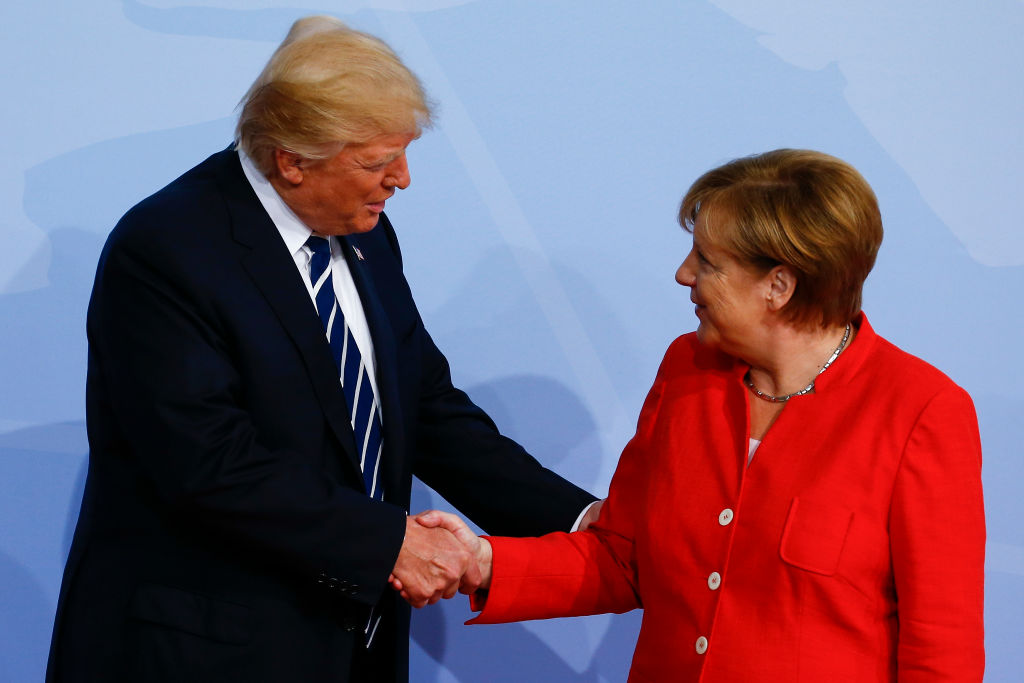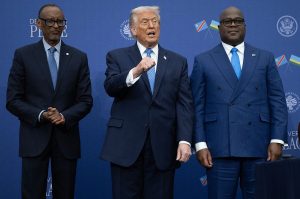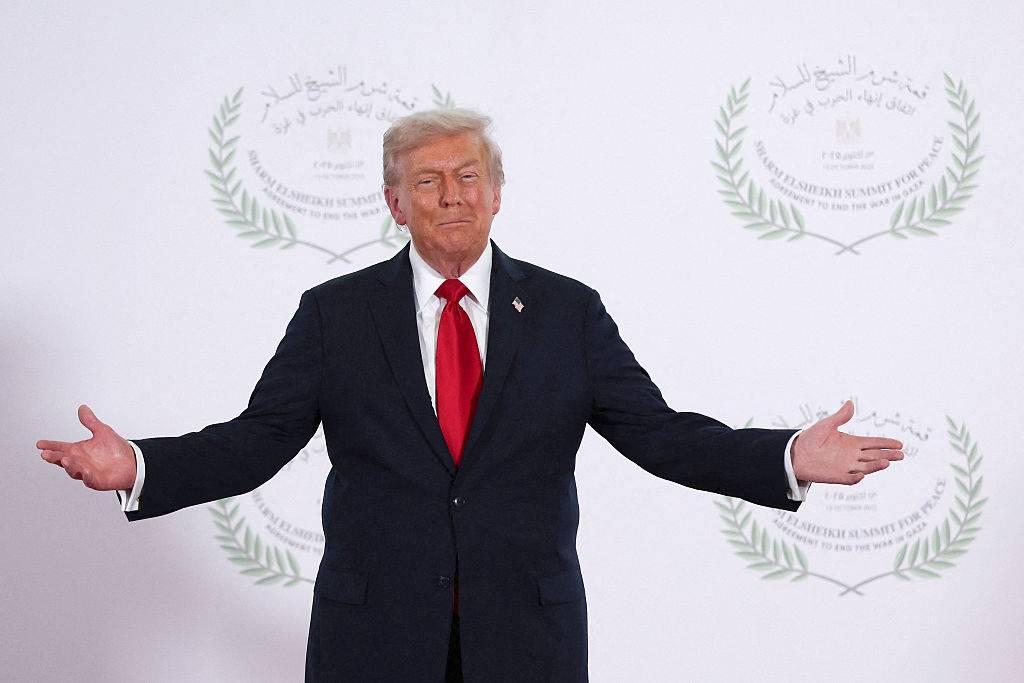Why should the United States prop up the defense of Germany, the richest country in Europe — and against Russia, Germany’s closest energy partner?
Two reasons. One is what the sociologists call ‘path dependency’. The US has had troops in Germany since the winter of 1944, and the Cold War and Nato turned military occupation into strategic alliance. Since 1990, a vast machinery of budgets and employments, civilian and military, has perpetuated a strategy for a conflict that no longer exists. As British soldiers used to sing, ‘We’re here because we’re here because we’re here.’ This is not a good reason for risking American lives.
The other reason that American forces are there is because they have to be somewhere near there. The United States could cut its economic links with the rest of the world and then, after the appropriate interlude of grass-eating and reconstruction, survive in isolation as an autarky. But that would assure a strategic future akin to that of the Byzantine Empire in its later centuries. Allied with Europe, however, the United States resemble Rome before the collapse of its western half.
The EU represents 22 percent of global GDP; second only to the US’s 24 percent. Add Britain, and the US directs an alliance representing nearly 50 percent of global GDP — an alliance capable of setting the kind of global norms that will perpetuate American influence in the face of Asian competition. There is little prospect of China submitting to those norms: we are, if we are lucky, heading for an extended stand-off with China. But if those norms are sustained in the way that the US sustained its alliances in the Cold War, there is every chance of attracting Asian powers alarmed by Chinese self-assertion — India, Japan, Australia, New Zealand, even Russia and the Central Asian powers.
So there are obvious low-cost, long-term benefits for US in supporting Europe. On this point as on others, Donald Trump has been deliberately misunderstood. If it wasn’t clear in 2016, it is clear now that his idea of ‘America First’ is primus inter pares: ‘first among equals’ in a multipolar world whose strategic lineaments bear little resemblance to those of the late 20th century. Getting Nato ‘partners’ to act like full partners instead of indulged children is part of that. So is moving troops from Germany to places where they might be more useful — and though the headlines talk of ‘withdrawal’, only a minority of the troops that will leave Germany will return to the US. Most of them are going elsewhere in Europe.
The question then is, if American troops are going to be somewhere there, where should they be? One answer might be that they shouldn’t be anywhere where they’re not wanted. A recent Pew survey found that 75 percent of Americans think their country has good relations with Germany, but 64 percent of Germans think their country has bad relations with America. Sixty-nine percent of Americans want to ‘co-operate more’ with Germany, but only 50 percent of Germans want to ‘co-operate more with the Americans, compared to France (77 percent), Japan (69 percent) and Russia (66 percent).
The Germans produced two of the 19th century’s greatest strategists, Bismarck and Clausewitz, and then blew it by producing two of the 20th century’s worst strategists, the Kaiser and the Führer. After 1945, the East Germans pretended to be victims and the West Germans had the temerity to flip in the space of a generation from history’s worst warmongers to its most sanctimonious pacifists. The Germans remain dependent on this path to moral rehab. It might feel good to them, but it’s not much use to the US.
[special_offer]
The same Pew survey found that 60 percent of Americans think the US military should defend a Nato ally against a ‘serious military conflict’ with Russia, but 60 percent of Germans felt that Germany should not defend its Nato ally. The most likely case for that scenario would be on Germany’s doorstep, in the band of ex-Soviet states that runs north-south from the Baltic to the Black Sea. Germans, in other words, share their politicians post-Cold War preference for Russia.
The US should accept victory in Germany just as it should accept defeat in Afghanistan. Through American blood and subsidy, the Germans have been restored to independence in a liberal democracy. They are political adults, free to make stupid decisions for themselves. American influence over the German propensity for arrogant bungling will neither be augmented nor decreased by the presence of American troops in Germany — and, though you wouldn’t know it from the grumbling, Germany will still host more US servicemen and women after the Department of Defense’s ‘repositioning’ than any other EU state.
The ex-Soviet states of the EU’s eastern front — the Baltic states, Poland, the Czech Republic and Hungary in particular — are also free political adults once more. Their peoples are much friendlier to the US and they value their freedom. The tripwire between the West and the Rest no longer runs through the middle of Berlin: it is on Estonia’s border with Russia, Bulgaria’s frontier with Turkey, and at sites of Chinese economic penetration in the Balkans such as the port of Piraeus in Greece. It is in the EU’s east and southeast that the US forces will be symbolically and strategically valuable: repositioning forces to Italy and Poland confirms the political borders of the EU.

























